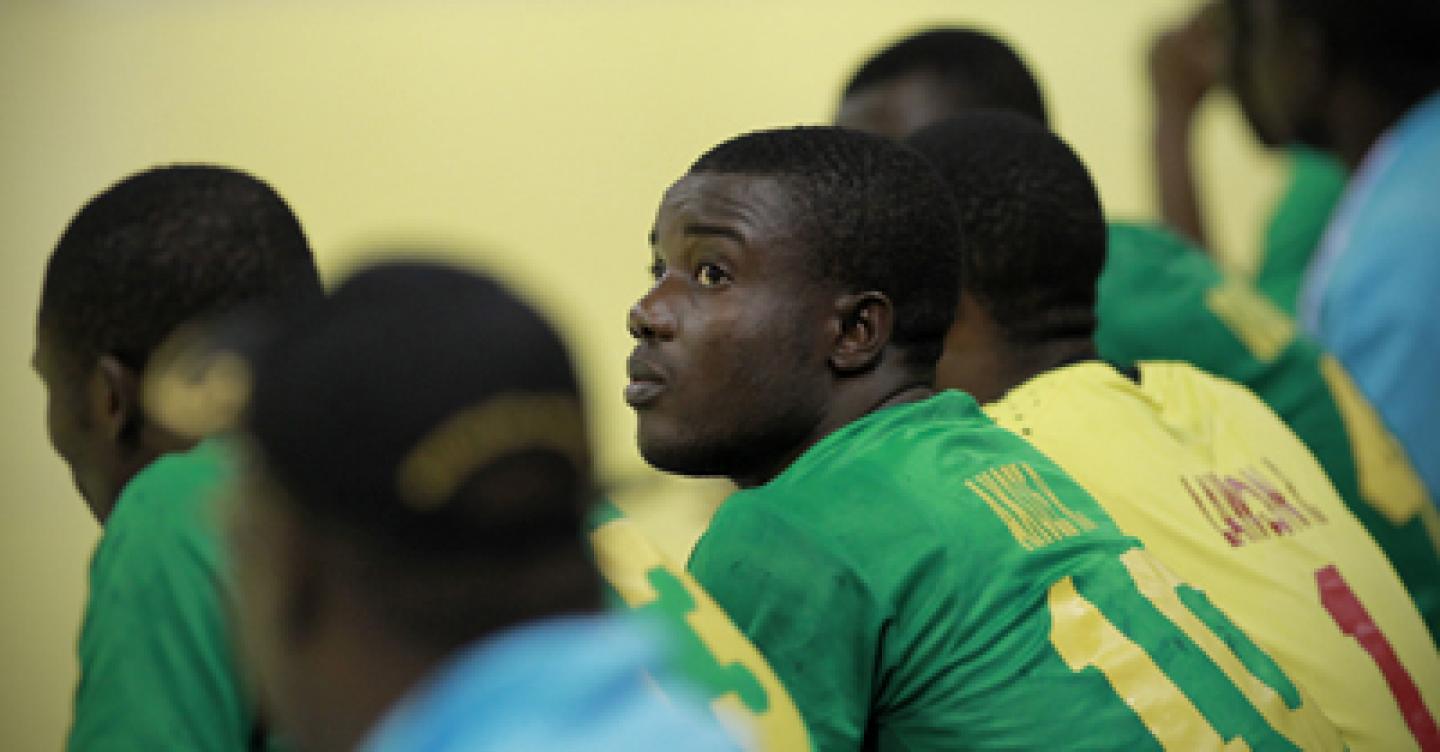BENIN - The long way up
25 Jul. 2011

Everyone who wants to learn something about handball in Benin needs to ask. If searching for information on the internet, you will get hardly any hits when entering the key words “Benin” and “handball”. Even the omniscient internet doesn’t provide an answer. But the truth is that in Benin handball is very popular – maybe not a national sport, but also not a fringe sport.
“3000 people play handball in Benin – and they are very enthusiastic”, explains Serge, head of the Beninese delegation at the Men’s Junior World Championships in Thessaloniki.
Serge ought to know that as he is not only head of the delegation, but also one of the decision makers at the Beninese Federation. Everyone calls him Serge, although his accreditation shows a number of further names: “Serge E.K. Akakpo Djihountry” it says. He is Secretary General of the Fédération Béninoise de Handball. On Friday Benin lost its fifth preliminary round game against Korea at 25:33. But nevertheless Serge is evidently proud of this young African team, who succeeded in qualifying for these Championships. “It has been the first time every that the Beninese handball team has taken part in the World Championships”, so Serge.
That is – despite the results – a great success for the relatively new Beninese federation. For approx. 10 years the federation has been working hard to come so far and has used its very moderate financial means to organize a youth concept in cooperation with Beninese schools in order to find and then support new talents. Their journey to Greece and the participation at the World Championships have been the first important success of the efforts taken by this small federation. “We have not been able to participate in such events for a very long time and therefore it really is a great experience.”
Since 1966 the Fédération Béninoise de Handball has been a member of the International Handball Federation. The country had just become independent in 1960 and was therefore still trying to find its own identity at that time. It has been a long way. And that is also true for handball. Nine million people live in Benin and 300 000 of them play handball. The most famous of all Beninese handball players is Mansourou Aremou, who is now not only President of the Fédération Béninoise de Handball, but also President of the Confederation Africaine de Handball (CAHAB) and member of the IHF council.
All this presents a solid fundament. Especially since it seems as if the national division in Benin is working despite all difficulties – even if it’s on a small scale. But Benin has a first and second division for men and also for women. Certainly the divisions are small with only six teams each. The teams bear evocative names such as Flowers HC or Flambeau SC. To save expenses and to prevent the teams from having to travel too often and too far, the federation organizes events in the form of tournaments every now and then. “That’s the only possible way”, comments the Secretary General.
The next step in the process of handball in Benin will be taken very soon. The federation is planning to further develop the national team on the basis of the Juniors age group now playing at the WCh in Greece. In January the African Championships are taking place in Morocco, where Benin will take part for the first time. Until then, coach Basile Nouatin will have a lot of work compiling a powerful team. What is sure is that “50 per cent of my Juniors will be part of the quad of the first team”, so Nouatin. Patrick Joel Quenum will be among these 50 per cent for sure – with 20 goals he is the top scorer of his team at the WCh in Thessaloniki.
The aim at the African Championships is stated, but it sounds more than a wish than anything else. “We would be so happy to enter the quarter-finals”, says Serge. “That would be great.”

